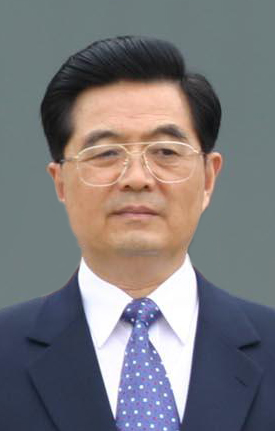 Image via Wikipedia
Image via WikipediaSince the initiation of economic and political reforms in 1978, China has produced an average annual growth rate of 10%. From 1978 to 2008, China has increased its GDP by 83 times (NBS, 2009) and lifted over two hundred million of its people out of poverty. However, China still faces enormous challenges, especially in the energy sector. Since coal based power is directly responsible for such a major share of global carbon emissions, it will be imperative for China to develop new technologies which will allow energy to be extracted from coal without noxious emissions.
Given the rapid economic development China has become not only a major energy consumer, but also a significant energy producer. Domestic coal accounts for roughly 76% of the total production followed by crude oil at 13%, hydropower at 8% and natural gas at 3%. Consequently, faced with concerns over air pollution problems from coal and the need to address climate change, China recently announced its intention “to reduce its carbon levels by 40-45% of 2005 levels by 2020.”
While China’s energy consumption has rapidly increased over the years, the per capita consumption is still low and in rural areas much more energy will be needed to be produced in the near future. While many families in major metropolitan cities in China routinely own refrigerators and televisions, appliance ownership in rural areas is very low. As the farmers and peasants increase their standard of living through stimulus funding by the Chinese Central Government directed at massive economic and infrastructure projects in the rural areas (establishing an elaborate freeway system, paving roads and establishing power grids) in an effort to identify new sectors of business opportunity, more energy will be needed to power a variety of new domestic appliances so that these people can enjoy the same quality of life as the urban Chinese.
Furthermore, even though China is one of the biggest energy producers and consumers, the Chinese Central Government is concerned with making an effective contribution to energy security in the world market. China supplies energy to many countries in Africa, Asia and Europe and has exported over 80 million tons of coal and roughly 13 million tons of charcoal to account for 60% of the amount of charcoal traded around the world. China has also taken the initiative to improve global energy security by exporting energy intensive products such as small domestic appliances.
However, as a non-market economy, China continues to face many challenges in the energy sector. China’s reliance on imported oil and natural gas continues to rise while there is a consistent imbalance between supply and demand which will not be solved in the foreseeable future. Indeed, China has to rely on a continued supply of oil and gas from countries such as Iran, Libya and Russia to constantly meet the increasing demands of its growing populace who are consistently demanding greater supplies of energy. Furthermore, this rapid increase in energy consumption necessarily causes environmental problems, including the emission of CO2 and the challenge for China is to enact policies that will give top priority to energy conservation.
The Chinese Central Government will focus on strengthening international co-operation on energy policy to promote efficient use of energy as well as establishing a concrete plan for a clean energy supply through the use of shale gas and other mineral resources. China plans to accelerate research and development into advanced energy conservation methods and techniques as well as implementing key energy conservation projects. China also plans to strengthen energy pricing reforms and implement preferential tax policies focusing on energy efficiency by providing depreciation deductions on equipment and reducing the corporate tax rate on projects involving renewable energy.
China will make a concerted effort to develop clean and efficient use of coal through coal liquefaction, gasification, etc., accelerating the development of nuclear power and improving its oil and natural gas pipeline network. Furthermore, China continues to invest heavily in building up its national oil reserves in areas such as Dalian and Qingdao where I have visited and was made aware of oil base reserves currently under construction. China’s goal is to develop around 10 million tons of oil and will establish a framework for the application of laws and regulations for these national oil reserves.
Consequently, in an effort to deal with environmental problems that are endemic to energy consumption, China will expand its use of renewable energy. China will promote the development of renewable energy through the establishment of a renewable energy industry services system along with tax incentives.
China will further its cooperation with foreign countries to implement its domestic energy production through bilateral trade negotiations. The goal is to have increased dialogue and discussion on energy security, energy exploration and cooperation on clean coal and renewable energy supplies.
Since the United States and China have signed bilateral agreements on energy policy, energy cooperation between China and the United States was one of the important issues for President Hu Jintao during his state visit to Washington, DC earlier this year. Both countries recognize the benefits of such cooperation to ensure a readily available supply of energy for both countries as well as the creation of business opportunities between American and Chinese companies in an effort to promote positive relations between both countries and increase the global supply of oil. In fact, American oil companies have played a significant role in China’s oil exploration and development for the past few years.
By. Ralph Winnie
Source: Diplomatic Courier










